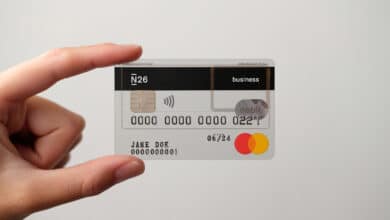In the course of digitalization, many things have changed in all our lives. This also includes the management of banking transactions. Whereas in the past we had to go to our trusted bank advisor for transactions or drop transfer forms filled out by hand into the bank mailbox, nowadays everything is easier. Thanks to the Internet! So it’s hardly surprising that traditional German banks are increasingly threatened with bankruptcy. In this case, it must be said quite clearly that one man’s grief is another man’s joy. While traditional banks are experiencing a real downturn, digital banks are doing better than ever. Banks like N26 are setting new records year after year. And all this without a single analog branch. With Revolut and Qonto, two new neobanks are now settling into the German market.
The digital bank
Hand on heart: when was the last time you were in a bank branch? And I don’t mean a visit to the ATM to withdraw money, but a visit to the bank advisor you trust. The generation that still uses such services is shrinking. Nowadays, just about everything can be done conveniently online. Now two new players, Qonto and Revolut, are entering the German market and showing how banking works today. Both have received the coveted banking license for Europe and are now attacking the previous leader N26.
Revolut is already worth 33 billion US dollars
How pioneering digital banks are can regularly be measured by their enterprise value. For example, London-based financial firm Revolut has just been valued at $33 billion. Considering that the company has been around for less than seven years, that’s really impressive. No less presentable is the customer base that Revolut has been able to build up. Globally, 18 million customers now rely on the financial company’s services. If the information provided by financial experts is to be believed, it seems that it won’t be long before Neobank ventures its IPO.

According to the company, the banking license for Europe, which has now been snatched up, is intended to serve its customers first and foremost. Says Revolut CEO Joe Heneghan:
“The launch of Revolut Bank in Germany will provide our customers with an even higher level of security and trust, and allow us to bring a variety of new products and services to market in the near future.”
An ambitious start-up
Although Qonto still prides itself as a start-up, one certainly has to question this given the amount of company capital it has now amassed. With an enterprise value of a proud 4.4 billion euros, the French are now entering the German market with a proudly swollen chest. First of all, Qonto is hunting for new investors. As it now turns out, this was more than successful. The start-up was able to generate a whopping 486 million euros from its backers. Given the promising opportunities on the banking market, this is hardly surprising. Incidentally, Qonto has its sights set on a somewhat different market than Revolut or market leader N26.

So the French are only targeting corporate customers with small or medium-sized businesses. The kicker is that the startup doesn’t have to subordinate itself to the two big players in the private banking sector without a chance, but can do its own thing. Of course, the financial services offered by Qonto are clearly aimed at commercial customers. After all, the French don’t just offer accounting services that can be conveniently digitized. On top of that, the young company advertises a lively exchange with accounting software providers such as Datev. We are sure that the two new players will bring a breath of fresh air to the online banking sector.




